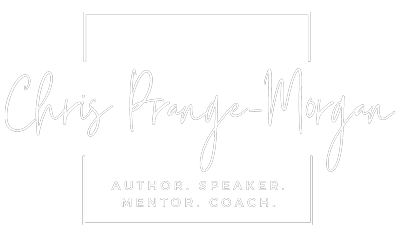Nelson Mandela spent 27 years in prison before he became the first democratically elected president in South Africa. Oprah Winfrey grew up poor and on welfare, was sexually abused twice, and went on to become a media mogul and entertainment giant. Neuroscientist Viktor Frankl spent three grueling years in the concentrationcamps of Auschwitz and Dachau before founding the field of logotherapy and writing the bestselling book Man’s Search For Meaning.
I’ve often wondered how some folks seem to rise above adversity to do amazing things. Are they genetically wired to be stronger and more resilient? Are they better connected? Do they have some special sauce in the recipe of their life’s unfolding—a secret to finding an inner hardiness that eludes the common folk?
Some research has shown that while 50 percent of our happiness is genetically hard-wired, 10 percent is dependent upon life circumstances, and 40 percent is changeable, depending on the choices we make.1 While the authors of the study state these numbers to be estimates, further critique of the research has shown that life is truly an interplay of dynamics inside and outside of our control. And regardless of the situational or genetic hands we’ve been dealt, the behaviors and habits we engage in do matter.2
Life-hacks
Here are some things we can do to help us cope when life throws hardship our way.
Find your wonder and awe.
In his TED Talk3, palliative care physician BJ Miller shares how a freak traumatic accident landed him in the hospital, facing the amputation of three of his limbs. During this harrowing period, he recalls one of his nurses smuggling in a silvery, cold, wet snowball and placing it in his intact hand. “I cannot tell you the rapture I felt,” Miller recalls, “holding that in my hand. The miracle of it all—the fascination as I watched it melt and turn into water.”
Ethan Kross, Professor and Director of the Emotion and Self Control Lab at the University of Michigan, states: “When you experience awe, that’s an emotion we have when you’re in the presence of something that’s vast and hard to explain.” He goes on to describe: “What science has shown is that when you experience awe, that leads to a ‘shrinking of the self, So our own problems feel smaller by comparison.4” Whether it’s grasping a melting snowball, watching a serene summer sunset, holding a newborn baby, or standing on a mountaintop, these “moments” are touchstones.
Get out of your head and into your body.
My father was a competitive athlete, who I later learned struggled with lifelong low-grade chronic depression. It was only after I suffered a life-changing traumatic accident that I began to realize the importance of physical activity—and its accompanying endorphin release (a natural painkiller)—for my continued spiritual and emotional well-being.5 Like my dad, I also felt the subtle pull of inertia to stay on the couch and feel sorry for myself. But a retrospective glance down memory lane led me to realize something. Sports saved him—in more ways than one.
Some folks find it easier than others to embrace an active lifestyle. That’s why health programs offering incentives to get involved are so important. Movement is beyond just healing. It’s the grease that lubricates the body, mind, and soul. The old adage “motion is the lotion” has its roots in science and lived experience.
Find your purpose.
Friedrich Nietzsche coined the phrase: “He who has a why to live for can bear almost any how.” When we’ve lived through difficult circumstances, our experiences give us inner credibility that can be invaluable to others. Extending our hard-won hardiness, hope, and encouragement to others can feel like a balm to the soul.
Enduring hardship and rising from adversity ignite a certain courage that transforms the emotional structure of our beings. We can’t go back to who we were before the difficult thing happened. But our lived experiences—hard as they may be—can fuel us with a sense of dedication, meaning, and passion. As Brene Brown shares in her book Rising Strong: “What we understand and learn about rising strong is only a rumor until we live it and integrate it through some form of creativity so that it becomes part of us.”6
Don’t obsess about feeling “happy” all the time. Try connecting instead.
I’ve noticed an uptick of positive imagery on social media in recent years. Beautiful scenery, inspirational photos, and encouraging memes. And while these images may pique my interest temporarily, I’m usually left feeling like something in my life is lacking. That I need to get busy trying to make happiness happen—planning a vacation to a beautiful place. Throwing a party. Changing my circumstances to reach some inner state of exultation.
I know my experience isn’t unusual. An article in Scientific American shares that “our American obsession with happiness may be intimately related to a feeling of emptiness, or a life that lacks meaning.7”
For those of us who’ve fallen on hard times, we need to engage with the world not only in ways that invoke feelings of happiness, but also in ways that invite depth and connection. We need to share our stories and to listen to the stories of others wading through the weeds of uncertainty, empowered by the courage, strength, and hope we witness in one another.
References
Krueger, Joachim. Happy Pie. Psychology Today. https://www.psychologytoday.com/us/blog/one-among-many/201503/happy-pie
Neuman, Kira. How Much of Your Happiness is Under Your Control? The Greater Good Institute. February 2020. https://greatergood.berkeley.edu/article/item/how_much_of_your_happines…
Miller, BJ. What Really Matters at the End of Life? TED Talks: https://www.ted.com/talks/bj_miller_what_really_matters_at_the_end_of_l…
